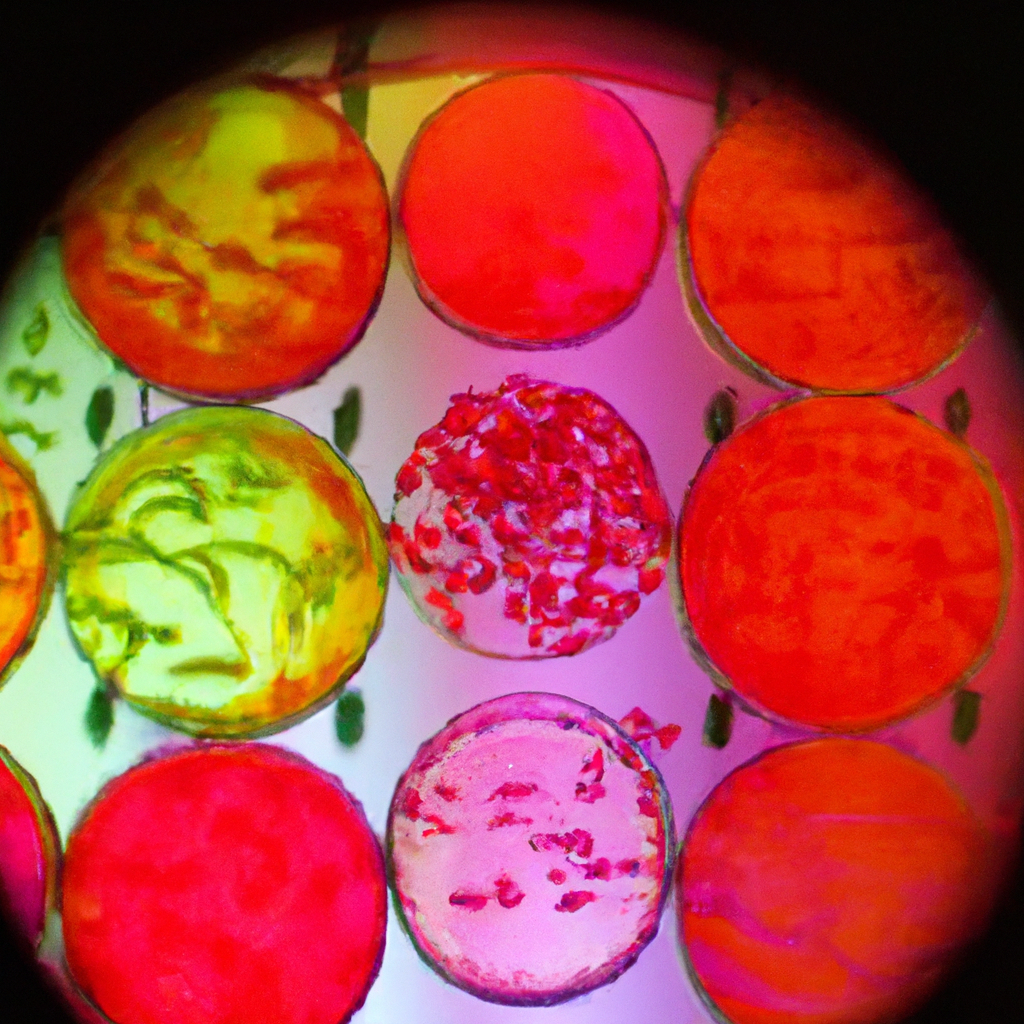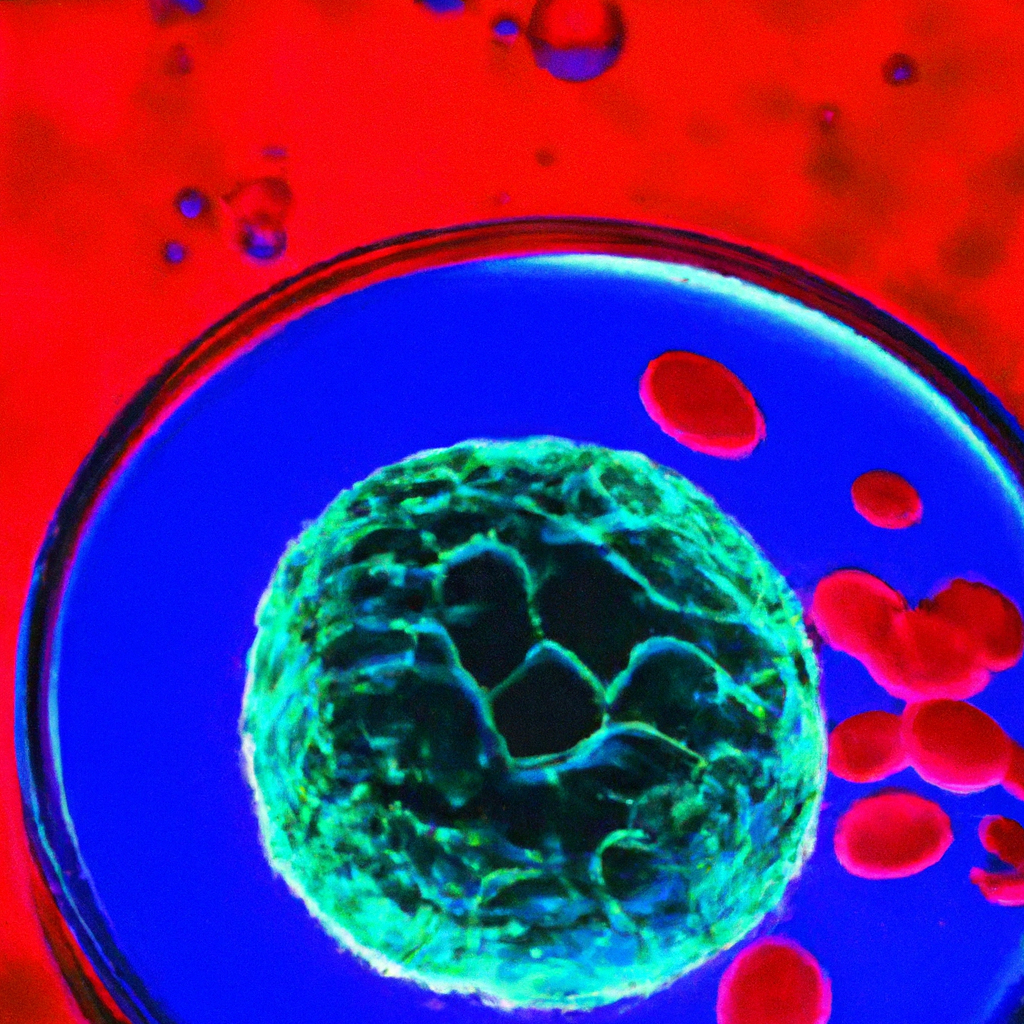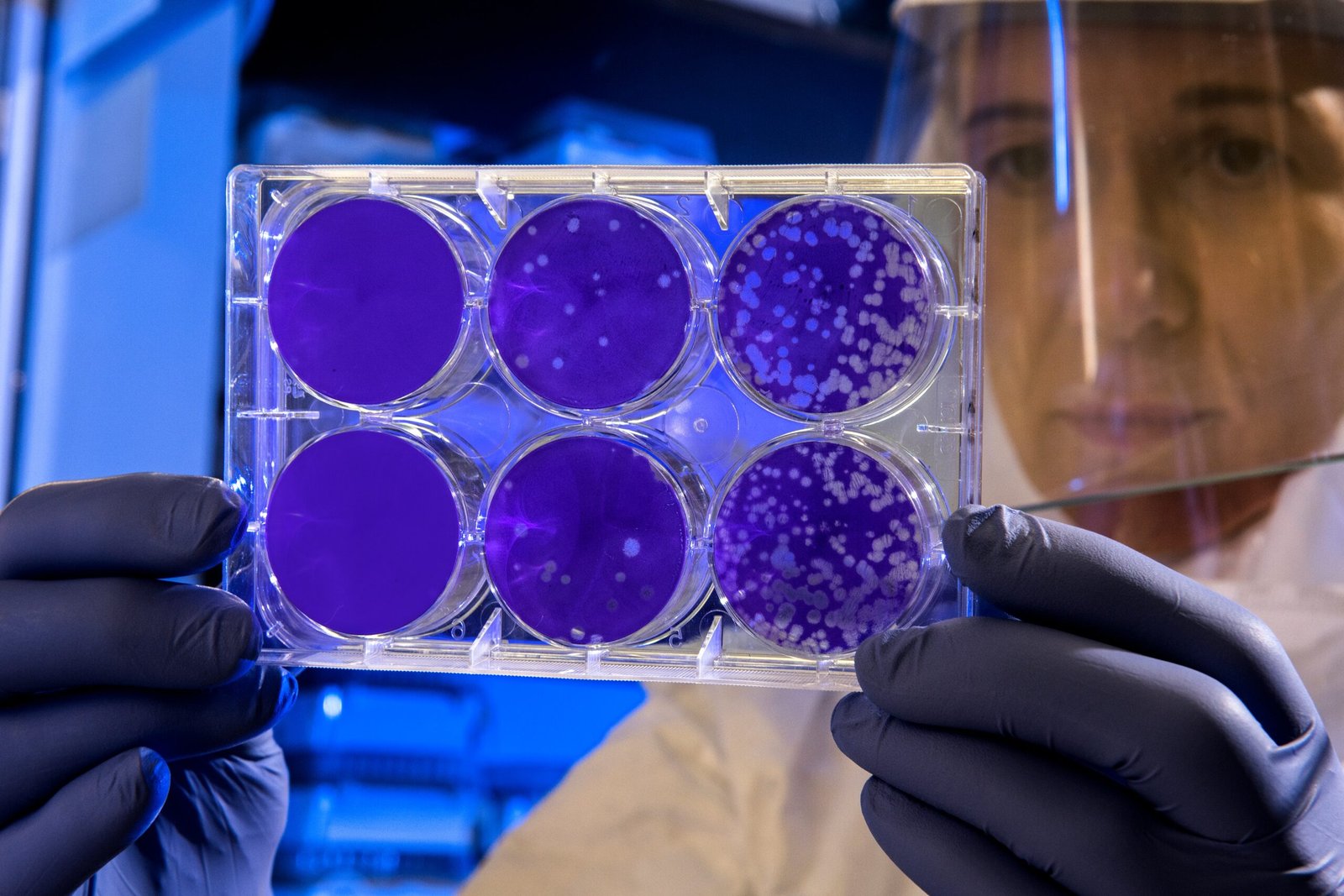Are you curious about the current state of stem cell research in Malaysia? Well, you’re in for a treat as we explore the exciting breakthroughs and advancements in this field. From potential cures for various diseases to groundbreaking regenerative treatments, stem cell research is revolutionizing the medical landscape in Malaysia. In this article, we’ll dive into the latest discoveries and developments, giving you a comprehensive understanding of the remarkable progress being made. So, grab a cup of tea, sit back, and join us on this fascinating journey into the world of stem cells in Malaysia. Get ready to be amazed!
Overview of Stem Cell Research in Malaysia
Introduction to stem cell research
Stem cell research is a field of scientific study that revolves around the unique properties of stem cells, which have the ability to differentiate into various specialized cell types in the body. These cells hold great promise for medical advancements and have the potential to revolutionize the treatment of various diseases and conditions. In Malaysia, stem cell research has been gaining momentum in recent years, with significant efforts being made to explore its potential applications and contribute to the global scientific community.
Importance of stem cell research
The importance of stem cell research cannot be overstated. Stem cells have the remarkable ability to regenerate and repair damaged tissues and organs, making them a valuable resource for developing new treatments and therapies. By understanding how stem cells function and how they can be manipulated, researchers are able to explore novel approaches to tackle a wide range of medical conditions, including cancer, heart diseases, neurological disorders, and organ failures. Stem cell research holds the promise of personalized medicine, where treatments can be tailored to an individual’s specific needs, leading to more effective and targeted therapies.

Malaysia’s involvement in stem cell research
Malaysia has positioned itself as a key player in the field of stem cell research. The country boasts a strong infrastructure of research institutions, universities, and medical centers that are actively engaged in studying stem cells and their applications. The Malaysian government has recognized the potential of stem cell research and has taken significant steps to support and promote its development. With a combination of funding, collaborations, and regulatory frameworks in place, Malaysia has made significant strides in advancing stem cell research and translating scientific discoveries into clinical applications.
Regulations and Ethical Considerations
Regulatory framework in Malaysia
Ensuring the ethical conduct of stem cell research is of utmost importance. In Malaysia, the field is governed by a robust regulatory framework that provides guidelines and oversight to ensure the protection of patients and the responsible use of stem cells. The National Stem Cell Registry, established by the Ministry of Health, regulates the licensing and accreditation of stem cell therapy centers in the country. This regulatory mechanism helps to ensure that stem cell therapies in Malaysia meet stringent safety and quality standards.
Ethical guidelines in stem cell research
Ethical considerations play a crucial role in stem cell research. Malaysia has established ethical guidelines that researchers must adhere to when conducting studies involving stem cells. These guidelines emphasize the importance of informed consent, patient privacy, and the responsible use of stem cells. Researchers are required to obtain approval from the relevant ethical committees before commencing their studies, ensuring that research is conducted in an ethical and responsible manner.
Implications of regulations on research progress
While regulations and ethical considerations are essential, they can also pose challenges to the progress of stem cell research. The rigorous approval process and strict adherence to regulatory guidelines can sometimes result in delays and additional administrative burdens for researchers, slowing down the pace of scientific advancements. However, it is important to strike a balance between ensuring patient safety and promoting scientific progress, and the regulatory framework in Malaysia seeks to achieve this delicate balance.

Types of Stem Cells Studied in Malaysia
Embryonic stem cells
Embryonic stem cells are derived from embryos and have the potential to develop into any cell type in the body. In Malaysia, research on embryonic stem cells is strictly regulated, following international guidelines and ethical considerations. While the use of embryonic stem cells for research purposes is limited, their study provides valuable insights into early human development and holds great promise for regenerative medicine.
Adult stem cells
Adult stem cells have been found in various tissues and organs throughout the body and are responsible for tissue maintenance and repair. Malaysia has been actively studying adult stem cells, as they offer abundant opportunities for therapeutic applications. Adult stem cells can be isolated from sources such as bone marrow, adipose tissue, and blood, and have shown potential in regenerating damaged tissues and treating diseases.
Induced pluripotent stem cells
Induced pluripotent stem cells (iPSCs) are a relatively recent breakthrough in the field of stem cell research. These cells are generated by reprogramming adult cells, such as skin cells, to a pluripotent state, similar to embryonic stem cells. Malaysia has been exploring the potential applications of iPSCs, as they offer a viable alternative to embryonic stem cells and provide a way to create patient-specific stem cell lines for personalized medicine.
Breakthrough Research Studies and Discoveries
Cancer treatment advancements
Stem cell research in Malaysia has contributed significantly to advancements in cancer treatment. Researchers have been studying the role of stem cells in cancer initiation and progression, as well as developing innovative therapies to target cancer stem cells. These advancements hold great promise in improving survival rates and quality of life for cancer patients.
Stem cell therapy for heart diseases
Heart diseases are a leading cause of mortality worldwide. Malaysia has been at the forefront of developing stem cell-based therapies for heart diseases, such as myocardial infarction and heart failure. Stem cells have shown the potential to regenerate damaged heart tissues and improve cardiac function, offering new hope for patients suffering from these debilitating conditions.
Neurological disorder research
Neurological disorders, including Parkinson’s disease and spinal cord injuries, present significant challenges to patients and healthcare systems. Stem cell research in Malaysia has focused on understanding the underlying mechanisms of these disorders and exploring the potential of stem cell-based therapies for neuroregeneration. These studies hold promise for improving the quality of life of patients affected by these conditions.
Organ regeneration and transplantation
The shortage of organs for transplantation is a pressing issue worldwide. Malaysia has been actively studying the potential of stem cells in regenerative medicine and developing strategies for organ regeneration. Researchers are exploring ways to engineer organs and tissues using stem cells, with the aim of overcoming the limitations of organ transplantation and providing viable alternatives for patients in need.

Collaborations and Partnerships
Local research institutions
Malaysia’s strong network of research institutions and universities plays a vital role in advancing stem cell research. These institutions serve as hubs of scientific discovery and innovation, fostering collaborations and knowledge-sharing among researchers. Multiple research centers dedicated to stem cell research have been established, creating a conducive environment for multidisciplinary research and advancements in the field.
International collaborations
Collaboration with international partners is crucial for Malaysia to stay at the forefront of stem cell research. The country actively collaborates with renowned research institutions and scientists from around the world, exchanging knowledge, expertise, and resources. These collaborations enhance the quality and impact of research in Malaysia, allowing researchers to tap into global advancements and contribute to the international scientific community.
Industry partnerships and commercialization
The translation of stem cell research into viable therapies requires strong partnerships between academia and industry. In Malaysia, collaborations between research institutions and industry players have been fostering the commercialization of stem cell technologies. Through these partnerships, research findings can be translated into practical applications, benefitting patients and driving economic growth in the country.
Challenges and Limitations
Limited funding and resources
Despite the growing interest in stem cell research, limited funding and resources can pose significant challenges. Securing funding for research projects and acquiring state-of-the-art equipment and facilities can be a hurdle for researchers. Adequate investment in stem cell research is crucial to support ongoing studies and attract talented researchers to the field.
Public perception and misconceptions
Public perception and misconceptions surrounding stem cell research can hinder its progress. Lack of awareness and understanding of the science behind stem cells can lead to skepticism and resistance. A concerted effort must be made to educate the public about the potential benefits and ethical considerations of stem cell research, ensuring informed conversations and building public trust.
Technical and scientific hurdles
Stem cell research is a complex and rapidly evolving field, presenting various technical and scientific challenges. Researchers face obstacles such as optimizing cell culture techniques, ensuring the safety and efficacy of stem cell-based therapies, and overcoming immune rejection issues. Overcoming these hurdles requires continuous innovation, collaboration, and interdisciplinary approaches to advance the field.

Promising Applications of Stem Cell Research
Personalized medicine and drug development
Stem cells hold great promise for personalized medicine. The ability to create patient-specific stem cells allows researchers to study disease mechanisms and develop personalized therapies. Stem cells can also be used for drug testing and screening, leading to the development of more effective and targeted treatments.
Cell-based therapies
The potential of stem cells in cell-based therapies is vast. Stem cells can be used to replace damaged or malfunctioning cells in the body, offering a regenerative approach to treating various diseases. Cell-based therapies utilizing stem cells have shown promise in conditions such as diabetes, spinal cord injuries, and degenerative joint diseases.
Regenerative medicine
Regenerative medicine aims to restore structure and function to damaged tissues and organs. Stem cells, with their remarkable regenerative properties, are at the forefront of this field. Malaysia’s research efforts in regenerative medicine are focused on enhancing tissue repair and promoting organ regeneration, providing new avenues for treating chronic and degenerative diseases.
Future Directions and Roadmap
Emerging research areas
Stem cell research in Malaysia is continuously evolving, with emerging research areas gaining traction. These include tissue engineering, gene editing technologies, stem cell banking, and bioinformatics. Malaysia is actively investing in these promising research areas, expanding its scientific capabilities and positioning itself as a hub for cutting-edge stem cell research.
Integration of stem cell research in healthcare
The integration of stem cell research into mainstream healthcare is a key focus in Malaysia. Efforts are being made to bridge the gap between research and clinical applications, ensuring that stem cell therapies and treatments benefit patients directly. This integration requires collaboration between researchers, clinicians, and policymakers to establish robust regulatory frameworks and pathways for translating research findings into clinical practice.
Policy changes and support
To foster the growth of stem cell research, supportive policies and regulatory frameworks are essential. Malaysia recognizes this need and is actively engaging policymakers to facilitate the development and commercialization of stem cell technologies. By providing supportive policies and initiatives, Malaysia aims to attract investments and talents in the field, paving the way for breakthroughs and advancements.

Patient Perspectives and Success Stories
Testimonials from patients
Patient testimonials offer a powerful insight into the impact of stem cell therapies on individuals’ lives. In Malaysia, numerous success stories have emerged, highlighting the potential of stem cell treatments in improving quality of life and providing hope for patients and their families. These personal accounts serve as a testament to the transformative effects of stem cell research and its potential to revolutionize healthcare.
Impact of stem cell therapies on quality of life
Stem cell therapies have the potential to significantly enhance the quality of life for patients suffering from various diseases and conditions. In Malaysia, research and clinical trials have shown promising results in conditions such as spinal cord injuries, stroke, and autoimmune disorders. Stem cell-based interventions have the potential to restore function, alleviate symptoms, and improve overall well-being.
Economic and societal benefits
In addition to improving patient outcomes, stem cell research can also bring about significant economic and societal benefits. Malaysia’s investments in stem cell research and development create opportunities for economic growth, job creation, and innovation. The advancement of stem cell therapies can reduce healthcare costs in the long run by providing effective treatments for chronic diseases, reducing hospital stays, and improving patient outcomes.
Conclusion
The current state of stem cell research in Malaysia is one of progress, potential, and hope. Researchers, institutions, and the government have recognized the importance of stem cell research in revolutionizing healthcare and improving patient outcomes. Malaysia’s strong regulatory framework, collaborations, and research advancements position the country as a key player in the field. With ongoing research, support, and public engagement, the future of stem cell research in Malaysia holds immense promise, paving the way for breakthroughs and advancements that will benefit patients and society as a whole.




